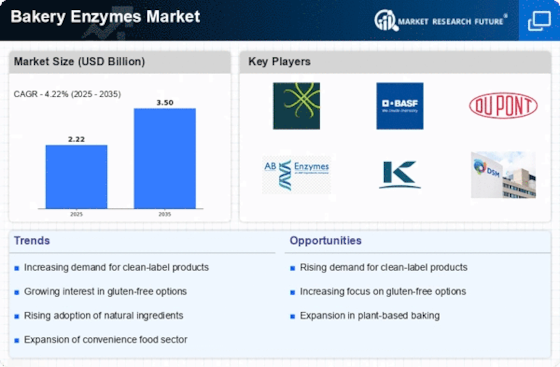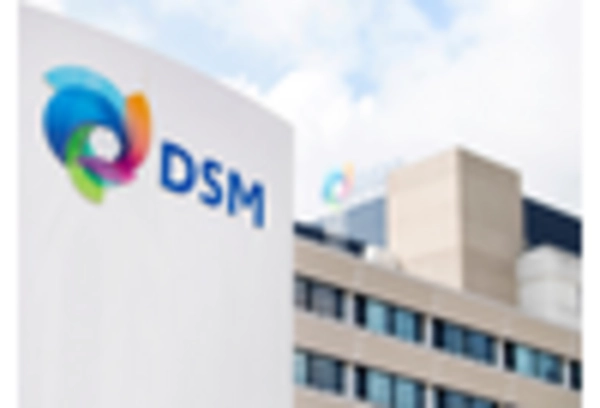Market Analysis
In-depth Analysis of Bakery Enzymes Market Industry Landscape
The bakery enzymes market is undergoing dynamic changes driven by the increasing demand for improved baking efficiency, the rising consumer preference for clean-label bakery products, and technological advancements in enzyme formulations. One of the key drivers shaping the market dynamics is the quest for enhanced baking performance and quality. Bakery enzymes, including amylases, proteases, and lipases, play a crucial role in dough conditioning, texture improvement, and shelf-life extension. The market dynamics reflect the bakery industry's continuous pursuit of enzymes that optimize baking processes, ensure product consistency, and contribute to the overall quality of baked goods, meeting the evolving demands of both consumers and manufacturers.
Market dynamics are further influenced by the growing consumer emphasis on clean-label and natural ingredients in bakery products. Enzymes, being natural catalysts, align with the clean-label trend as they facilitate the baking process without the need for synthetic additives. The market dynamics highlight the increasing demand for clean-label bakery enzymes that improve dough handling, texture, and freshness while meeting consumer expectations for transparency and authenticity in ingredient lists.
Moreover, the bakery enzymes market dynamics are shaped by technological advancements in enzyme production and formulation. Innovations in enzyme engineering and fermentation processes enable the development of enzymes with enhanced stability, specificity, and application versatility. These advancements contribute to the expansion of enzyme functionalities, allowing manufacturers to address specific challenges in dough development, gluten modification, and overall product improvement. The market dynamics underscore the importance of continuous innovation in enzyme technologies to meet the dynamic needs of the bakery industry.
The bakery enzymes market is also influenced by the global trends in the bakery and confectionery sector, including changes in consumer preferences, bakery product diversification, and the impact of health and wellness considerations. As consumers seek healthier bakery options, enzymes are utilized to improve the nutritional profile of products, reduce the need for certain additives, and address gluten-related concerns. The market dynamics reflect the evolving landscape of bakery products, with enzymes playing a pivotal role in aligning with health-conscious consumer preferences.
Challenges within the market dynamics include regulatory considerations, variable enzyme activity, and the need for customized solutions. Regulatory standards and approvals play a crucial role in shaping the market dynamics of bakery enzymes. Manufacturers must adhere to strict regulations to ensure the safety and quality of enzyme products, particularly those used in bakery applications. The variable activity of enzymes under different processing conditions poses challenges in maintaining consistent performance during bakery operations. Overcoming these challenges requires in-depth research and development efforts to enhance enzyme stability and functionality.
Market dynamics are also influenced by the demand for customized enzyme solutions tailored to specific bakery applications. Different bakery products, from bread to pastries, may require enzymes with distinct characteristics to achieve desired results. Manufacturers in the bakery enzymes market must address the diverse needs of the bakery industry by offering customized enzyme solutions that optimize dough development, improve texture, and contribute to the overall quality of baked goods.


















Leave a Comment